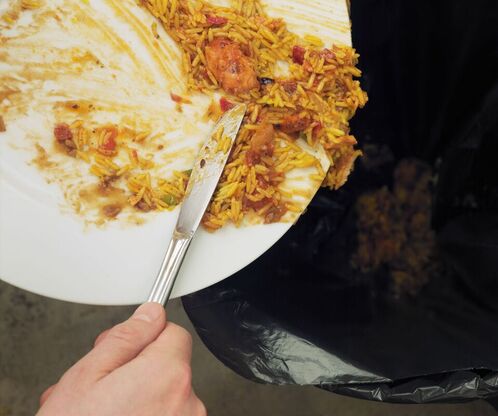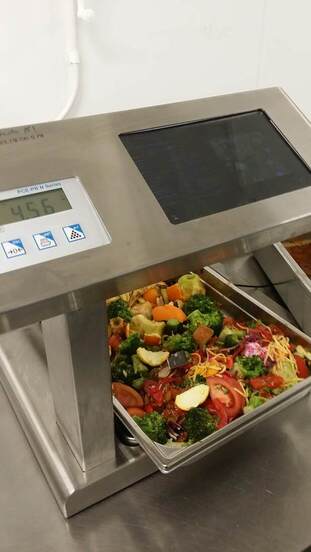Food Waste Findings for a Sustainable Food City
- Worldwide 1/3 of all food produced never gets on to a plate.
- 28% of agricultural land is being used to grow food that is wasted and with only 60 harvests left of good soil this is a waste of precious resources.
- Food waste in landfill gives off methane which is a dangerous greenhouse gas (20-25 times more dangerous than carbon dioxide)
The project involved recruiting food businesses who were already reducing food waste or those who would like to do more, and capturing case studies on their learnings and tips for other food businesses. Three organisations, a University hall, a restaurant and a cafe signed up to monitor their food waste through the Chef’s Eye Tech system, which weighs and photographs food waste at the same time and then sends the data to a web-based portal.
Monitor, monitor and monitor– whether this is through bespoke software, excel spreadsheets or typing up handwritten tallies. The resounding advise was without monitoring you won’t to know where to take action or how much money can be saved.
Design menus for food reuse – whether this was using breakfast croissants for savory lunch items, turning chicken into a stew or using butternut squash peelings for crisps.
Divert food from the bin – food waste is expensive to dispose of (to say nothing of the food costs, prep time and environmental impacts) so look for ways of diverting it from the bin. Often homeless charities don’t have the capacity to take food at short notice but there are plenty of apps which mean people can collect it. Consider discounting food or look at which of these are operational in your area: Too Good To Go, Olio or dropping off at a Community Fridge.
To read more about the project and download the guide head to the Going for Gold website.


10% of all online courses go to grassroots charities.
20% of all consultancy and bespoke workshops go for rewilding.
50 free places are awarded to campaigners from underrepresented communities each year.



